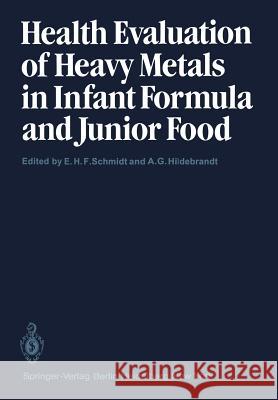Health Evaluation of Heavy Metals in Infant Formula and Junior Food » książka
Health Evaluation of Heavy Metals in Infant Formula and Junior Food
ISBN-13: 9783540118237 / Angielski / Miękka / 1982 / 192 str.
The uestion of whether an infant's diet represents a health hazard is not new. A health risk to infants from the intake of heavy metals via bottled food cannot be excluded at the present time. It is the purpose of this symposium to increase our knowledge of these disquie ting facts. If 70% of all environmental chemicals, including the ubi quituous heavy metals, enter the human body through food, to what extent are infants affected? Generally speaking, the effect on children has thus far been ex cluded from all the discussions concerning safety margins or limits on heavy-metal intake. Furthermore, this age group has also been largely excluded from studies determining the acceptable daily intake values for other substances. Paradoxically enough, such studies often contain a comment to the effect that children are particularly sensitive to these substances. The lack of consideration is certainly also due to the fact that little attention has been paid to this age group in toxicological research. The ZEBS study Heavy Metals in the Infant Diet by Kaferstein and MUller points to a mechanism which may increase the contamination of infant diet, namely the water used to prepare infant formula. Such facts as well as models for risk characterization have been presented by MUller and Schmidt in these proceedings. Yet many questions remain."











